Imparare una lingua straniera è molto divertente. Specialmente quando superate le prime fasi, cioè l’apprendimento del vocabolario e della grammatica e cominciate ad esprimervi e comunicare le vostre idee in un modo personale. Sembra che ogni cultura abbia già un sacco d’espressioni colorate per aiutarci a rendere le nostre conversazioni più vivaci. Rimanete qui per saperne di più.
Learning a foreign language is very entertaining. Especially when you get through the first couple of phases, that is learning vocabulary and grammar, and begin to express yourself and communicate your ideas in a personal way. It seems every culture has a lot of colorful expressions to help make our conversations more lively. Stick around to learn more.
Ogni giorno in inglese io uso tante espressioni idiomatiche. In Italiano si chiamano anche “i detti” o “modi di dire.” Ci sono alcuni che tutti conoscono, ma essendo un tipo creativo mi piace anche inventare espressioni tutte mie. Succede anche a voi? In famiglia o tra gli amici, per esempio, avete un linguaggio, che è nato in base alle esperienze che avete vissuto insieme? E questi detti sono capiti solo dalle persone che vi conoscono molto bene?
Every day in English I use lots of idioms. In Italian, they are called “i detti” o “modi di dire.” There are some that are well known, but being a creative type I like to invent expressions of my own. Does this happen also to you? In your families or with your friends, for example, do you have a private language, that evolves from moments that you have experienced together? And these expressions are only known to the people that know you very well?
Alcuni anni fa questo è stato messo in evidenza quando abbiamo ospitato una ragazza dalla Puglia. Francesca era una giovane studentessa e lei è venuta a vivere con noi per l’anno scolastico. Dal momento in cui è arrivata e ha varcato la soglia d casa e noi abbiamo iniziato a parlarle, è stata bombardata dalle espressioni che tra noi usavamo ogni giorno. Però per lei, è stato un incubo. Non capiva un’acca. Tutto era arabo per lei!
A couple of years ago this was made very evident when we hosted a girl from Puglia. Francesca was a California. From the moment she arrived and crossed the threshold of our house and we began to talk to speak to her, she was bombarded by expressions and idioms that we used between ourselves every day. However, for her, it was a nightmare. She didn’t understand anything.
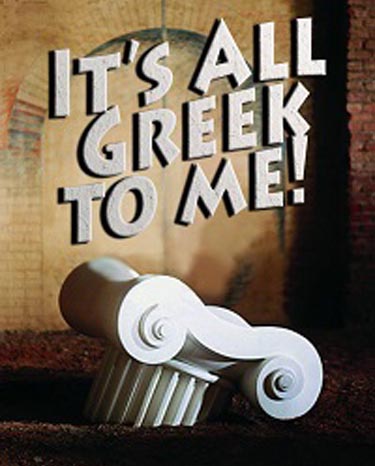
In Italiano quando qualcuno non capisce qualcosa si dice “non capire un’acca.” Si dice anche — “Tutto è arabo” quando qualcosa non ha senso. Come noi diciamo in Inglese: “It’s all Greek to me!”
In Italian when someone doesn’t understand something they say “non capire un’acca.” One can also say — “Tutto è arabo” when something doesn’t make sense. Like we way in English: “It’s all Greek to me!”
Oggi vorrei parlarvi delle espressioni italiane che potete inserire nelle vostre conversazioni con gli amici per sembrare più un madrelingua. Questi detti sono parte del gergo quotidiano, molto informale e usati molto nel linguaggio famigliare. Come in inglese ce ne tanti e per oggi ne ho scelti un paio che trattano degli animali. Qualche espressione mi sembra sia uguale alla loro controparte in inglese. Però ci sono sempre differenze culturali che rendono alcune espressioni differenti e qualche volta sorprendenti.
Today I would like to talk to you about a couple of Italian expressions that you can insert into your conversations with your Italian friends to seem more like a native. These idioms are part of the daily jargon, very information, and used in familiar speech. As in English, there are loads of them and for today I have selected a couple of them that have to do with animals. Some expressions to me are similar to their English counterparts. However, there are always cultural differences that make some expressions different and sometimes surprising.

Cominciamo con le espressioni che trattano degli animali domestici come i gatti e i cani. Conoscete l’espressione: Avere una gatta da pelare? Pelare significa sbucciare o spellare qualcosa…una patata, una mela. Ma un gatto? Che orrore! Nessuno vuole pelare il proprio gatto. A meno che tu non sia un tassidermista e voglia un ricordo del tuo gatto Fluffy. Infatti questa è una bella espressione che indica che hai qualcosa di molto faticoso da affrontare. In inglese abbiamo un’espressione simile. Quindi questo non dovrebbe essere troppo difficile da capire.
Let’s begin with some idioms that have to do with household pets like cats and dogs. Do you know the expression: To skin a cat? “Pelare” means to peel something…a potato, an apple. But a cat? That would be horrible! No one wants to peal their own cat. At least that is if you aren’t a taxidermist and want a memory of your cat Fluffy. In fact, this is a great expression that means to have something difficult ahead of you that you must deal with. In English, we have a similar expression. So this shouldn’t be difficult to understand.
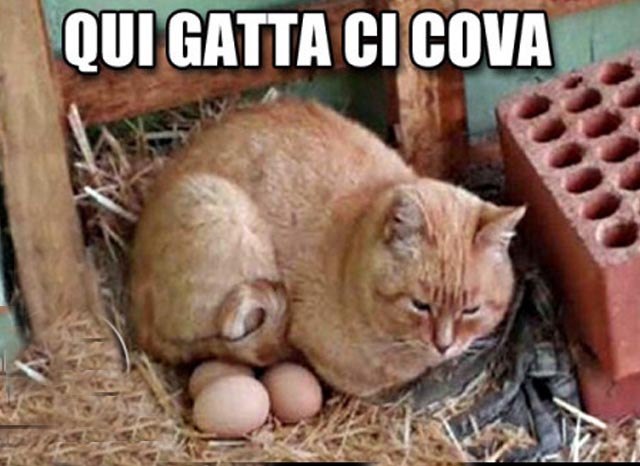
C’è un’altra espressione che tratta dei gatti meno facile da indovinare, cioè: “Qui gatta ci cova.” Quest’espressione significa che una situazione o una spiegazione non quadra. C’è qualcosa di misterioso che non va. In italiano la parola covare vuole dire: incubare un uovo. Per esempio: “Per la cova le galline si rintanano nel pollaio.” Ma i gatti non si siedano mai sulle uova per incubarle…quindi qualcosa non va. In inglese diciamo: “I smell a rat” — sento l’odore di un topo — o in inglese un altro simile: “there is something fishy going on here.”
There is another expression that deals with cats that aren’t so easy to understand, that is: “Qui gatta ci cova.” This expression means that a situation or an explanation doesn’t quite add up. There is something mysterious going on. In Italian, the word “covare” means to incubate an egg. For example: To hatch eggs, the hen goes into the hen house to sit on her eggs.” But cats don’t ever sit on eggs to hatch them…so something isn’t quite right here. In English, we say: “I smell a rat” or another idiom similar: “there is something fishy going on here.”
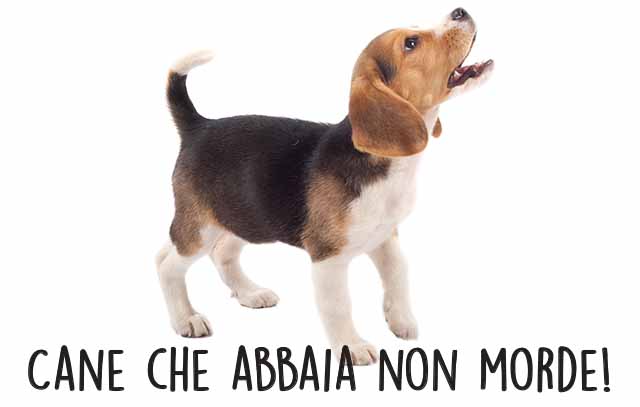
Poi ci sono le espressioni che trattano di cani. Tutti conoscono l’espressione in italiano e inglese: “Cane che abbaia non morde.” Quest’espressione è usata per descrivere le persone che sembrano aggressive ma in realtà alla fine non riescono a fare nulla di negativo. Sono troppe impegnate a lamentarsi che non hanno tempo di fare danni. In inglese si dice: “Dogs that bark don’t bite.”
Then there are expressions that have to do with dogs. Everyone knows the expression in Italian and English: “Dogs that bark, don’t bite.” This expression is used to describe people that seem aggressive but in reality in the end never succeed in doing anything negative. They are too busy complaining that they don’t have time to do any damage.
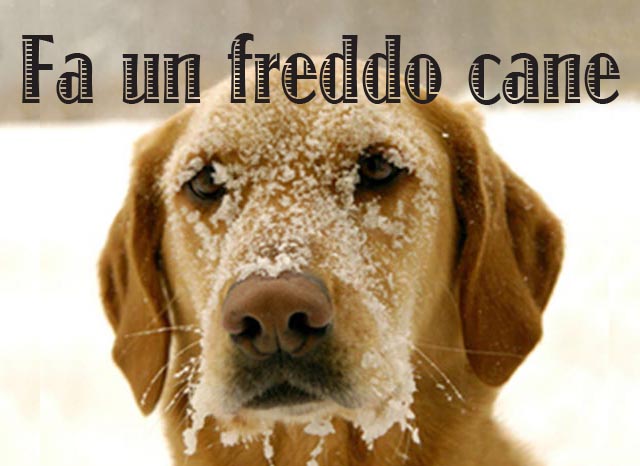
The Kokomo Humane Society
In Italiano per esprimere una temperatura molto rigida c’è anche l’ espressione “Fa un freddo cane.” In inglese non usiamo “cane” per descrivere questo. Invece diciamo: “freddo come un sasso” o “freddo come la tetta di una strega!” Bene! Divertenti queste espressioni, no? Ecco alcune che coinvolgono pesci.
In Italian to express a very cold temperature there is also the expression: “It is cold as a dog.” In English we don’t use dog to describe this. Instead we say: “cold as stone” or “cold as a witches tit!” Well, these are certainly entertaining expressions! Here are a couple that involve fish.
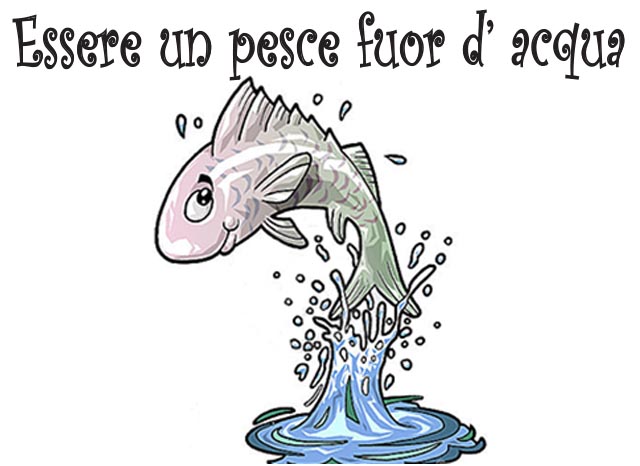
In inglese e italiano abbiamo la stessa espressione per esprimere la sensazione di essere fuori posto: “Essere un pesce fuor d’acqua.” Ma c’è un sacco di espressioni che non abbiamo in inglese che usano pesci.
In English and Italian we have the same idiom to express the sensation of being out of place: “To be a fish out of water.” But there are also many expression that we don’t have in English that use the word fish.
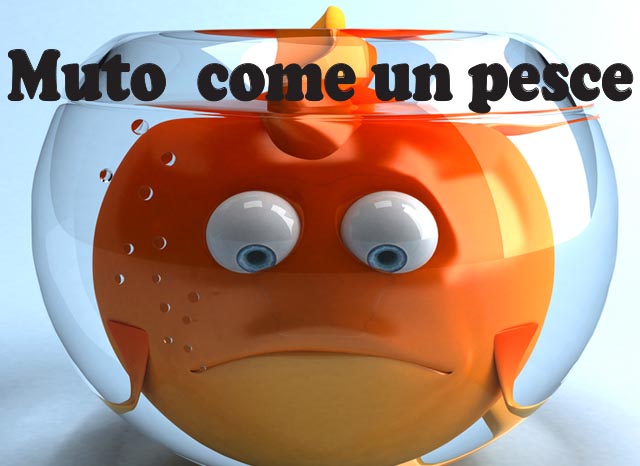
Muto come un pesce – che vuol dire questo? Si riferisce ad una persona taciturna, che non ha molto da dire. Poi, “chi dorme non piglia pesci.” Quest’espressione comunica l’idea che chi si dorme troppo o non si agisce ad una situazione, non si combina nulla. In inglese: “The early bird gets the worm.”
Silent as a fish — what does this mean? It refers to a person who is very quiet, who doesn’t have much to say. Then, “he who sleeps doesn’t catch fish.” This idiom communicates the idea the if you sleep too much or don’t react to a situation, nothing will happen. In English: “The early bird gets the worm.”

Poi c’è l’espressione: “È un pesce lesso.” Si usa per descrivere ad una persona molto noiosa e non molto intelligente. Immagino sia perché il pesce lesso è un piatto senza fantasia, non ci sono le spezie e il sapore e un po’ insipido.
Then there is the idiom: “He is a boiled fish.” You use this to describe a boring person who is not very bright. I imagine it is because a boiled fish is a dish that lacks creativity, there aren’t any spices and the taste is a bit bland.
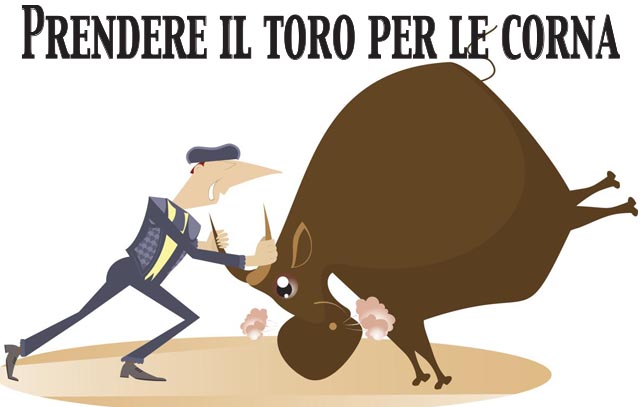
Per gli animali della fattoria ci sono anche alcune espressioni divertenti. In inglese e italiano tutti quanti conoscono: “prendere il toro per le corna.” Questa vuol dire affrontare una brutta situazione direttamente, senza avere paura. E per i cavalli usiamo ugualmente in italiano e in inglese l’espressione: “A caval donato non si guarda in bocca.” È molto maleducato criticare o rifiutare un regalo che qualcun’altro ti ha offerto.
For farm animals there are also some great expressions. In English and Italian everyone knows: “take the bull by the horns.” This means to face head on a terrible situation, without fear. And for horses we use equally in Italian and English the idiom: “Never look a gift horse in the mouth.” It is very impolite to criticize or refuse a gift someone has given you.

In Italiano ci sono altre espressioni diversi che usano “cavalli” che non abbiamo in Inglese. Per esempio: “A cavallo di” che significa un punto di grande cambiamento, per esempio andare da uno secolo ad un altro. “La rivoluzione industriale incominciò a far sentire i suoi effetti a cavallo del diciottesimo e del diciannovesimo secolo.”
In Italian there are other idioms that use “horses” that we don’t have in English. For instance, “At the horse of” that means to be on the point of a big change, for example going from one century to another. “The effects of the industrial revolution began to be felt at the turn of the eighteenth century to the 19th century.”
E poi c’è l’espressione: “Siamo a cavallo.” Questo significa che l’affare è fatto. Abbiamo successo e tutto è andato al nostro favore. In inglese: “The cat is in the bag.”
And then there is the expression: “We are at horse.” This means that the deal is done. We were successful and everything went in our favor. In English: “The cat is in the bag.”
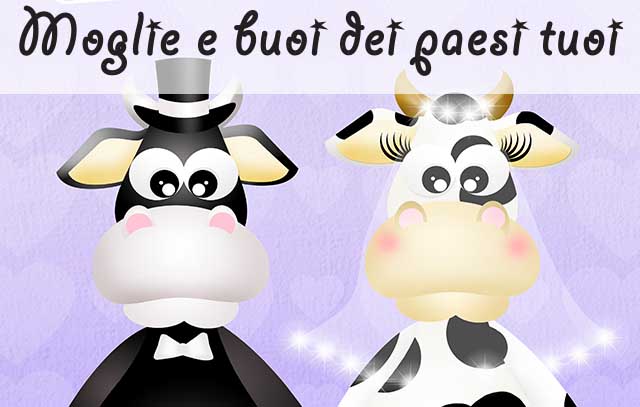
Vedete? I modi di dire non sembrano di finire mai. Da ultimo volevo farvi conoscere quest’espressione che ho imparato recentemente ad una festa – è stata a Natale — in cui c’erano tanti amici italiani. E stavamo parlando di una coppia che abita in Italia. Specificamente una donna americana che si sposata con un uomo italiano e l’anno scorso hanno deciso di divorziare. Sì, vi confesso stavamo spettegolando un po’…succede no? Mentre stavamo parlando uno degli amici mi hanno detto: “Moglie e buoi dei paesi tuoi.” Mi ha guardato e mi ha chiesto, “Melissa, conosci quell’espressione?” Quando gli ho detto di no, lui me l’ha spiegata.
See? The idioms never seem to finish. Before I go I have just one more that I’d like to share with you that I just recently learned at a party – it was at Christmas — and there were many Italian friends. We were talking about a couple who lives in Italy. Specifically, an American woman who had married an Italian man, and last year they decided to divorce. Yes, I confess we were gossiping a little…it happens, right? While we were talking one of my friends said to me: “Wives and oxen from your own country.” He looked at me and asked, “Melissa, do you know this expression?” When I told him no, he explained it to me.
Moglie e buoi dei paesi tuoi è un detto italiano che si usa per indicare diffidenza verso le cose straniere. Con questo proverbio si vuole dire che è meglio scegliersi il proprio partner tra le persone che sono dello stesso luogo, che hanno un “background” simile. È un detto di saggezza popolare riferito al mondo contadino. I buoi erano parte integrante della vita contadina, e non si andava a cercarli lontano. Secondo il detto e lo stesso per prendere una moglie: scegliere una moglie e lavorare dove sei nato ti eviterà molte sgradevoli sorprese.
Wives and oxen from your own country is an Italian expression that is used to indicate distrust towards foreigners. This is a proverb that means it is better to select your partner from people who are from the area from where you are from, who have a similar background. It is a popular saying from the past that refers to the peasant world. Oxen were an integral part of the peasant’s life and you didn’t have to go far to find one. According to the proverb, it is the same for choosing a wife: if you chose a wife and work in the area you were born you will avoid unpleasant surprises.
Boh! Che ne pensate? Oggi giorno? Dovremmo scegliere una persona dello stesso Paese o della stessa cultura in cui siamo nati? È la stessa cosa per le persone di diverse età? Perché qualche persona potrebbe obiettare che crescere in una generazione diversa potrebbe essere come vivere in un Paese straniero perché le persone hanno vissuto vite diverse e non condividono le stesse esperienze e la stessa storia. Non hanno lo stesso rapporto con la cultura — la musica, i film o lo sport . È possibile avere una vera storia d’amore con qualcuno di una generazione diversa o che viene da un Paese straniero? Funziona bene? L’amore conquista tutto? Che ne pensate? Dite le vostre opinioni. Sono curiosa.
Well! What do you all think about that? In today’s day and age? Should we select a person from the same country or the same culture in which we were born? Is it the same for people of different ages? Because some people could argue that growing up in a different generation could be like living in a foreign country because the individuals have lived different lives, and have not shared the same experiences or history. They don’t have the same relationship with the culture, music, film or sports. Is it possible to have a real love story with someone from another generation or who comes from a foreign country? Does it work? Does love conquer everything? What do you think? State your opinions. I’m curious.
Allora! Questo è tutto. Siamo a cavallo! Avete i detti o espressioni preferite da condividere? Lasciatemi un commento. Mi piace sentirvi. Ci sentiamo la prossima volta. Ciao!
Okay! That’s it. Siamo a cavallo! Do you have idioms or favorite expressions to share? Leave me a comment. I’d love to hear from you.
If you liked this post you might like these too:
Join Melissa in Arezzo in September 2018 for small group language immersion program


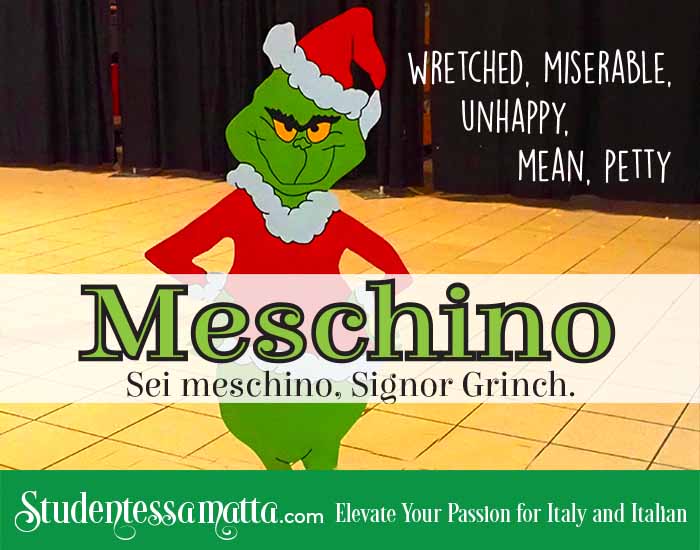









I simply love the Italian idioms. They are so colorful and growing up I heard a bunch of them. I understood the meaning but as a child trying to explain the English counterpart was difficult. I love reading your Italian posts. Un abbraccio forte!
Ciao Marisa! grazie! Sono molto contenta che ti piacciano i post! Mi piace ricevere i tuoi commenti! I love hearing from you! It makes me happy that people are responding and identifying with my posts and videos! It makes it all worthwhile to interact with readers. Please keep reading and commenting! Un abbraccio forte!
Mi piacciono molto tutti questi detti. rendono la nostra bella lingua molto vivace e viva! Grazie!
Sì! Hai ragione. Ce ne tanti belle espressioni! 🙂
Great article on idioms. Thanks. I’ve always heard one of the English expressions stated differently:
“His bark is worse than his bite” which means that a loud, aggressive individual isn’t someone you necessarily need to fear will harm you.
Ciao Mary! Ci sono tante tante variazioni sui detti. There are lots of variations. Interessante trovare quelli simili e quelli diversi tra le lingue. Un abbraccio! Stammi bene! Melissa
Ciao Melissa:
Mi è piaciuto tantissimo questo video su le espressioni idiomatiche,…molto interessante…per quanto riguarda alla espressione “Moglie e buoi del paesi tuoi” non sono molto d’ accordo con il fatto che tua moglie o marito devano essere dal tuo stesso Paese.Credo che l’amore non abbia tempo,luogo,età,ecc….L’Amore conquista tutto!!!….e mi piacerebbe molto conoscere una ragazza italiana,…..per praticare il mio italiano,hahahahah.Un abbraccio,Gustavo
Ciao Gustavo! Sono contenta di sentirti di nuovo! Come stai? Sono anche felice che abbia fatto una risposta alla domanda che ho proposto! Penso anche come te. L’amore conquista tutto nonostate l’eta e il Paese in cui sei nato. Spero veramente che tu troverai una ragazza italiana con cui potresti avere una bella storia d’amore! 🙂 Un abbraccio! Meli
Ciao…me piace molto tutto quello che fai e ti chiedo no lasciare mai😁.
Ho vissuto tanti anni fa in Italia a Napoli…ma adesso sono nel mio paese Brasile e ho perduto la scioltezza
.come faccio per riaverlo?
Grazie di cuore.😄
Ciao, grazie per l’interessante articolo. Esiste in inglese un’espressione che si avvicina a quella italiana di “moglie e vuoi dei paesi tuoi “? O non esiste proprio come concetto di vicinanza-lontananza culturale? Grazie!